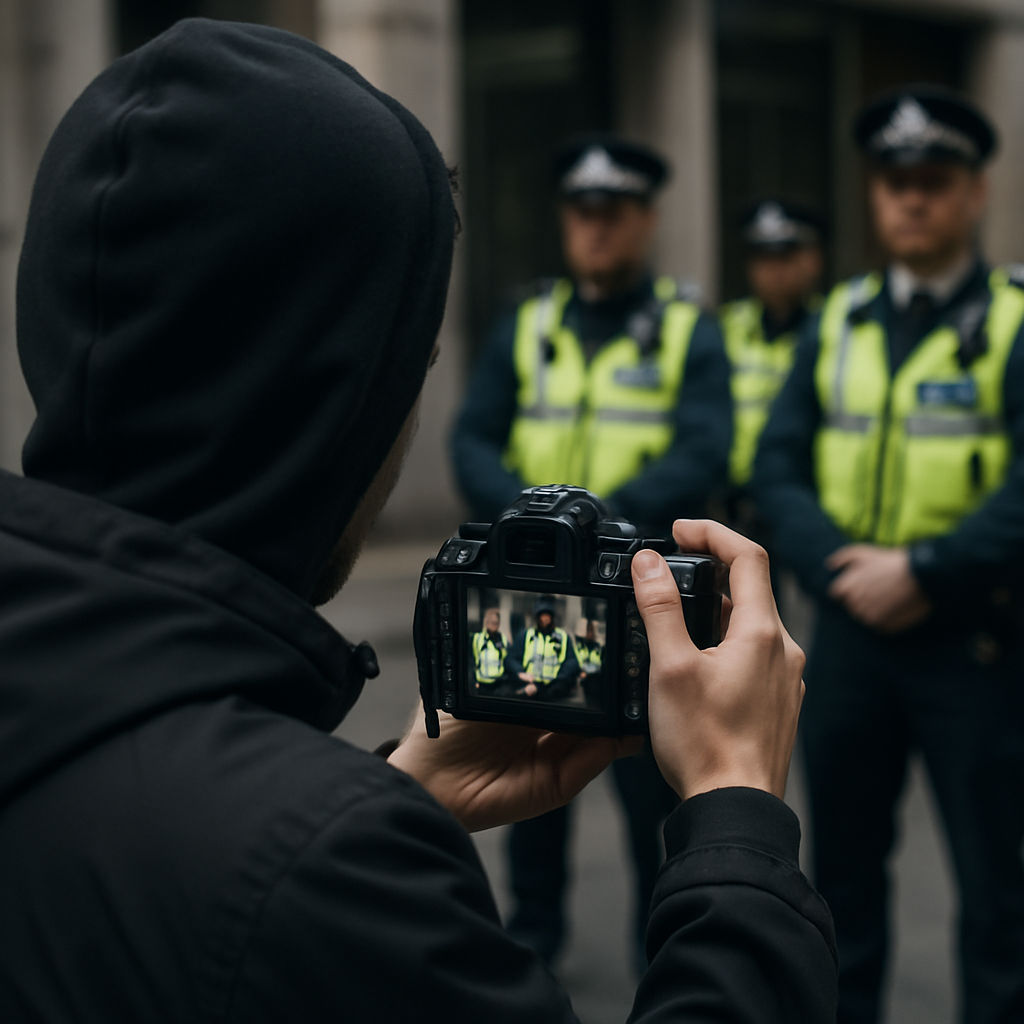Cameras make the police nervous. So, officers handcuffed YouTube content creator Phillip Turner and placed him in the back of a patrol car when he started video recording from a sidewalk across the street from their station in Fort Worth, Texas.
“We’re gonna make you sweat,” the officers told Turner when he declined to identify himself. “We have the right and authority to know who’s walking around our facilities.”
The 5th U.S. Circuit Court of Appeals disagreed. After Turner sued the officers who detained him, a three-judge panel held in 2017 that people have a First Amendment right to record the police, “subject only to reasonable time, place and manner restrictions.” This standard is now clearly established, yet the police continue to search for workarounds.
The latest effort to dodge the First Amendment comes in Louisiana, where state lawmakers passed legislation to keep onlookers away from police encounters. For any reason or no reason at all, officers can order people to step back at least 25 feet. Anyone who crosses this invisible line after being warned is guilty of a misdemeanor and could face fines of up to $500 and imprisonment for up to 60 days.
Lawmakers have attempted similar schemes in Arizona, Florida and Indiana. Louisiana began enforcing its law in August 2024, but the Reporters Committee for Freedom of the Press filed suit on behalf of six news organizations and obtained a preliminary injunction on January 31. The case now heads to the same 5th Circuit Court that heard Turner’s appeal.
A decision could hinge on a vagueness claim that the news organizations made under the 14th Amendment. As they correctly point out, Louisiana provides no guidelines for officers to follow when issuing retreat orders, essentially giving the police limitless authority that could lead to arbitrary and discriminatory enforcement.
This could be enough to overturn the law. Yet, the First Amendment guarantees of “freedom of speech, or of the press” deserve consideration. Louisiana’s law does not explicitly target video recording, but it gives the police a tool to push unwelcome cameras out of range, especially considering that officers who stand on the perimeter of a police encounter and order people back might already be distanced from the activity.
Media professionals would suffer. So would random bystanders and citizen journalists. Not long ago, few people carried cameras. Now, almost everyone has a smartphone, creating opportunities to capture public events from multiple angles. Police who use excessive force or violate the Constitution in other ways must be held accountable.
Officers learned this lesson in Lafayette, La., when they tried to accuse a 16-year-old boy of starting a fight with the police outside a bowling alley in 2020. Their narrative fell apart when videos appeared on social media, showing that the police struck first.
Police dashcams and bodycams can provide similar accountability. However, law enforcement agencies have a history of suppressing embarrassing video. Associated Press investigators caught Louisiana state troopers turning off or muting their cameras during pursuits. Similar shenanigans have occurred from Miami to Seattle.
Even when footage is recorded, agencies can be slow to release it. After a police dog attacked and killed Joseph Pettaway in Montgomery, Ala., the city withheld bodycam video of the incident for five years. Smartphones, meanwhile, can stream live.
The added scrutiny is one reason the police prefer to work in the dark. If police concerns were crowd control and safety, they could use existing obstruction laws. Our public interest law firm, the Institute for Justice, lays out several options in a friend-of-the-court brief filed in the Louisiana case on July 3.
Even if officers handle a situation poorly, they can hide behind qualified immunity, a judge-made doctrine that shields public employees from accountability.
This is what happened in Turner’s case outside the Fort Worth station. The 5th Circuit recognized his right to video record in public. However, the judges also granted qualified immunity to the officers who detained him, letting them off the hook.
As things stand, the police have a wide range of tools available to do their jobs. States do not need to add to the toolbox by enacting unconstitutional laws.


